Mediamax talked to John Harker, the Chairman of Amulsar Independent Advisory Panel.
John Harker is a leading international expert on responsible mining and multi-stakeholder processes. He was the President and Vice Chancellor of Cape Breton University in Canada. In 1999/2000 he was asked by the Government of Canada to review whether the presence and conduct of the country’s then largest oil company was exacerbating the Sudanese civil war. Dr Harker previously worked for the International Labour Organisation (ILO) and advised President Nelson Mandela on the creation of a National Development Agency in South Africa.
South Africa, Mandela’s revolution and his special advisor
After the revolution South African government asked the United Nations Development Program (UNDP) for help in creating a National Development Agency, and in 1996 – 1997 I was commissioned to fill this request as Special Advisor in the Office of President Nelson Mandela.
South Africa used to have a government only by and for white people. The new government headed by Nelson Mandela wanted to get to grips as quickly as possible with institutions of the government. They had a different mentality, so they also had to deal with the consequences, the legacy of the apartheid system.
He set things in motion by having a very early meeting with the UNDP. The agenda that his ministers put on the table at that meeting was a factor linked to me. A few years earlier, when Mandela was released from prison, he flew to Nigeria to meet with all Commonwealth governments, which had tried to help him. And he made a special request of them, saying “We need to know how education can be improved when we take over.”
I was asked by the Commonwealth to lead a panel a bit like the Amulsar Independent Advisory Panel. One of the issues that they quickly realized was that during the intense struggle against apartheid civil society was very harassed by the white government but often supported by outsiders in Britain, Canada elsewhere, so the movement attracted a lot of really skilled people and good methods of operating.
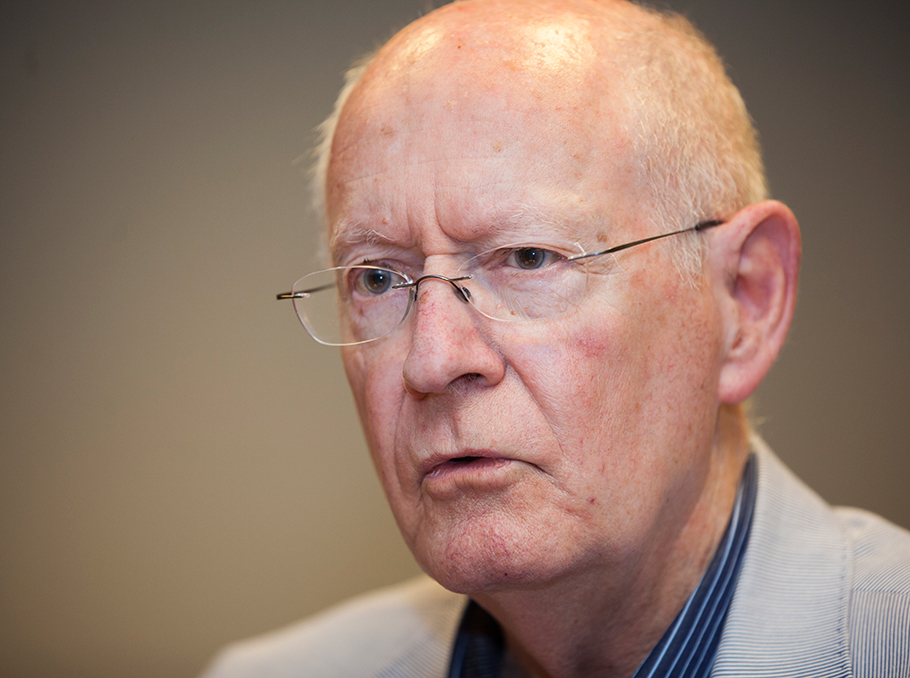 John Harker
John HarkerPhoto: Mediamax
When the big change of government came, many of the skilled NGO leaders were brought into the government. They wanted to create the government, focused on improving hospitals, education etc., and I was asked to come and interact with the ministers to see what could be done. I played a very small part, in fact. The South Africans created the change and led it, and I was useful.
While I was engaged in that responsible role, I rarely saw Mr. Mandela. He didn’t find himself burdened with how to manage a government on a day-to-day basis. Getting people to realize that it was a change, and they were all going to live in a better society, that’s what took up most of his time. He had a deputy, someone I knew, who ended up doing the hard work of supervising the government.
Many people were very angry about what they had to suffer, while Mandela said: “Ok, we’re not forgiving these people, we’re not forgetting what they did, but we’re going to try to give everybody a chance to show they’re better.”
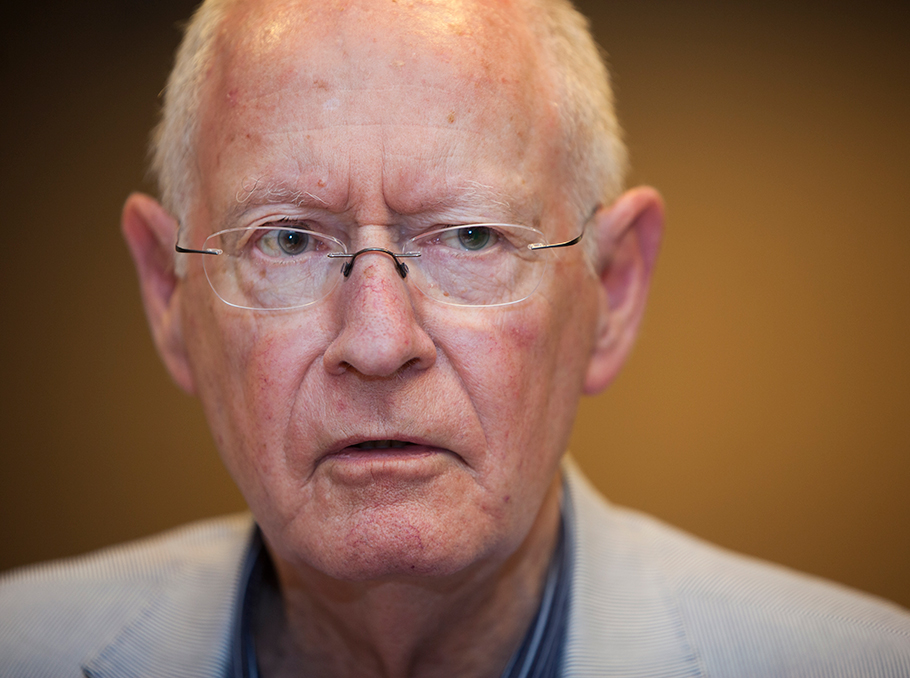 John Harker
John HarkerPhoto: Mediamax
For many years people didn’t expect this change to happen. The black majority was in negotiations with the white minority. Those negotiations were really strongly dependent on the fact that in the hard years black majority developed strong labor unions, and those labor union leaders became the key negotiators. Now one of them is the President of South Africa.
South Africa and Armenia, a needed dialogue
I don’t draw parallels between South Africa and Armenia. Armenia seems to be quite a special case.
I mentioned South Africa’s new President, who I first met when he was in his twenties. He spent his early life building a union for miners, and I know he’s come into office with a lot of change to accomplish.
The new President had several priorities. One is to develop a mining charter, a way of ensuring that mining is good for the country, the people are involved, while the climate and the environment are safe.
Economic problems following the revolution
You should start to think about what you can do to ensure economic growth and activity. For example, you should provide favorable conditions for people so that they don’t feel the need to go abroad to make a living. It’s a tragedy when people look around and don’t want to live and work in their own country. Creating these conditions requires attracting investment, but you can’t do that with your people being exploited or neglected. These are difficult issues for any government.
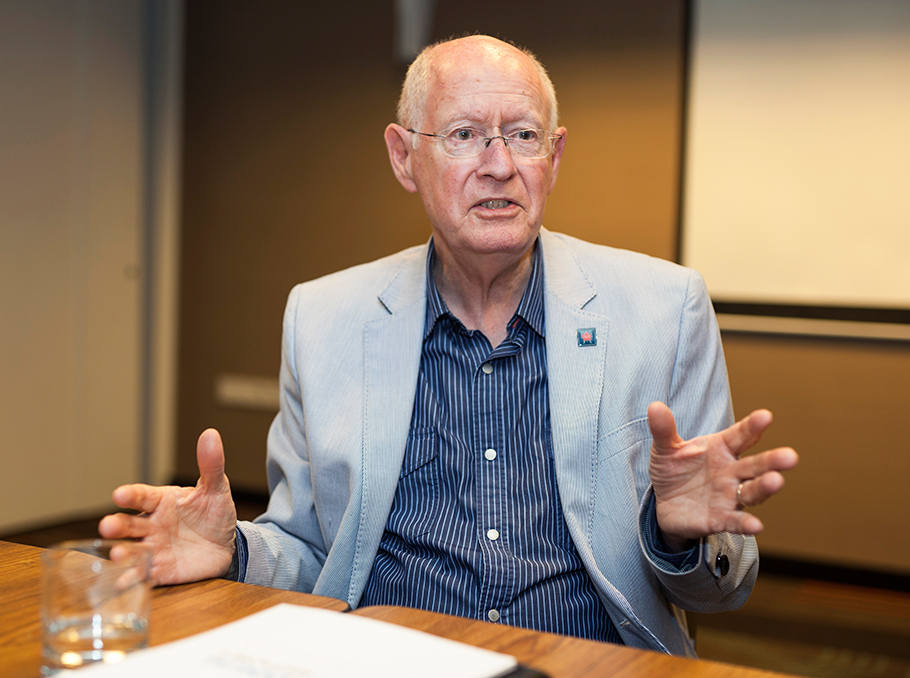 John Harker
John HarkerPhoto: Mediamax
If you look around the West, you will notice distemper. People are a bit fed up with leading elites. Where does that come from? Does it come from a realization that not enough has been done for the last thirty years to make sure that ordinary people have decent lifestyle? I think there’s been a failure of leadership in the West, but that doesn’t enable me to make any observation about your situation. We’ve had that, we have a less ready trust than we used to. Now you may or may not have a trust, but without trust it’s very difficult to get people to say: “Ok that might not be the ideal thing, but at least they’re doing their best.” I hope that what you’ve accomplished recently wins for itself the time to earn that trust.
Investments from Armenian diaspora and the rule of law
The rule of law is pretty fundamental. The rule of law definitely can attract good foreign investments.
Certainly, the process takes a long time to be established, and some good and bad changes happen in meanwhile.
Diaspora is a very interesting factor, and maybe that’s a good move, but there are very few Armenians living in different places. Are you able to attract them all? You should be able to attract investments other than necessarily from the diaspora.
There’s always a danger - whether a revolutionary change or regular electoral change. An investor is meant to operate, but if governments track investment, they should be very careful when it comes to changing the ground rules. I think that the government has to constantly look to creating favorable rules to attract responsible investors, who aren’t going to destroy the country. You need to attract ethical investors.
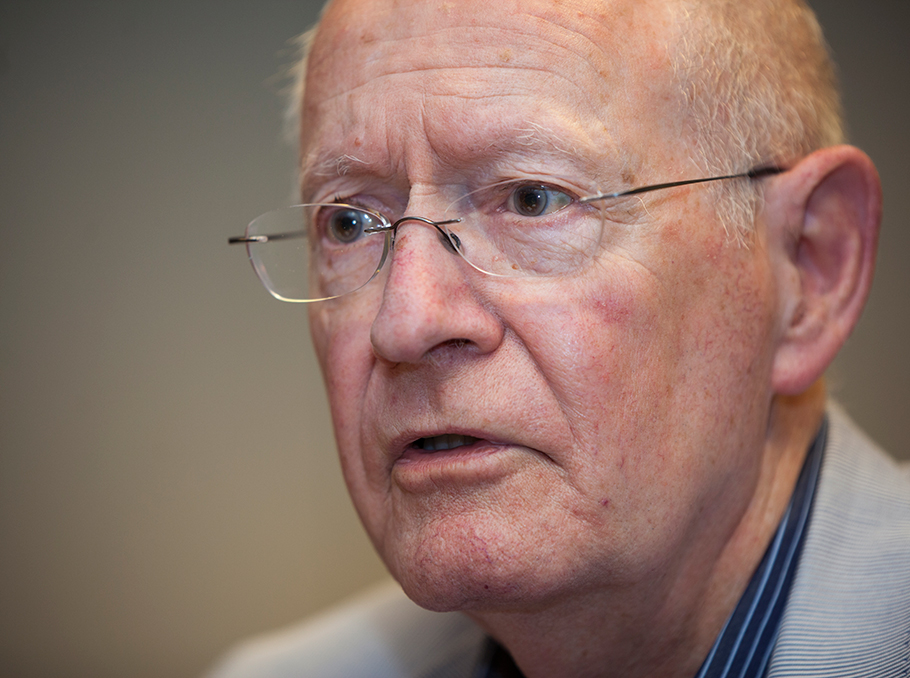 John Harker
John HarkerPhoto: Mediamax
You’ve got the prospect of sustainable change, and you should be able to manage it so that real improvements happen. Certainly, some aspects are not going to be changed overnight, but you need to be very careful at the consequences of what you’re doing. I don’t know your people or your leaders, but I assume they are bright enough to understand that.
The role of projects like Amulsar in post-revolutionary Armenia
The project was articulated in a different era, but it would be a tragedy if a post-revolutionary government thought: “That was approved by the previous government and, therefore, it has to go.”
This is a time of great opportunity. Crisis is actually made up of two pictures: one is danger, and the other is opportunity. So you may really face dangers because you may act in a wrong way. But you have a major opportunity. Everyone has to hope that your leaders are aware of the need to realize that there have been some positive and negative things, done by their predecessors. It’s that need to look very carefully up, where you are, where you’ve been and where you may go, and finally what should be the hallmark of this new leadership backed by in a way a generation that doesn’t want too much. There’s a great time of opportunity for younger people and the new leadership.
Marie Tarian talked to John Harker
Photos by Emin Aristakesyan
















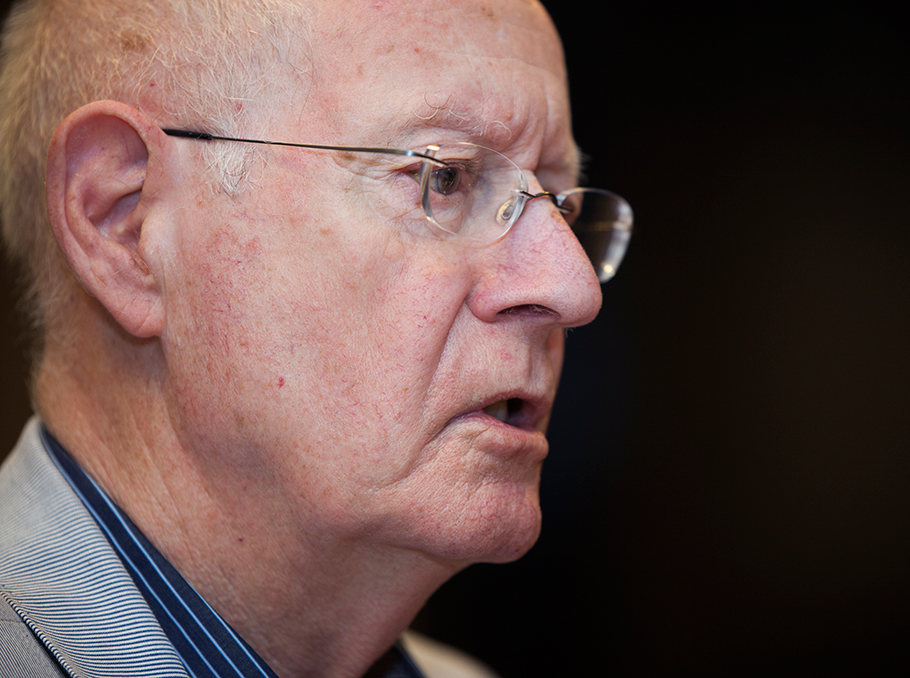
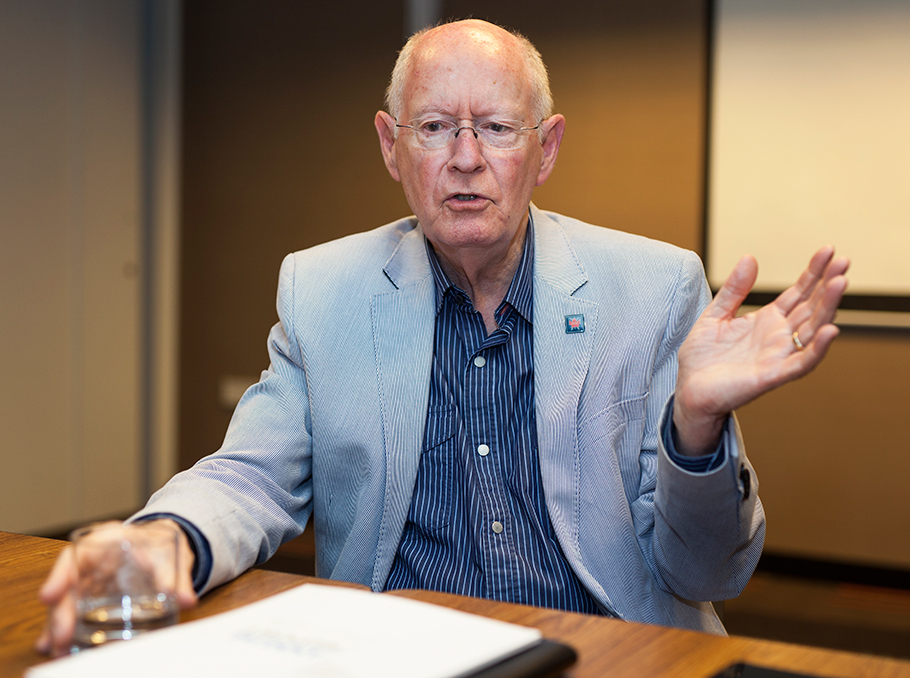


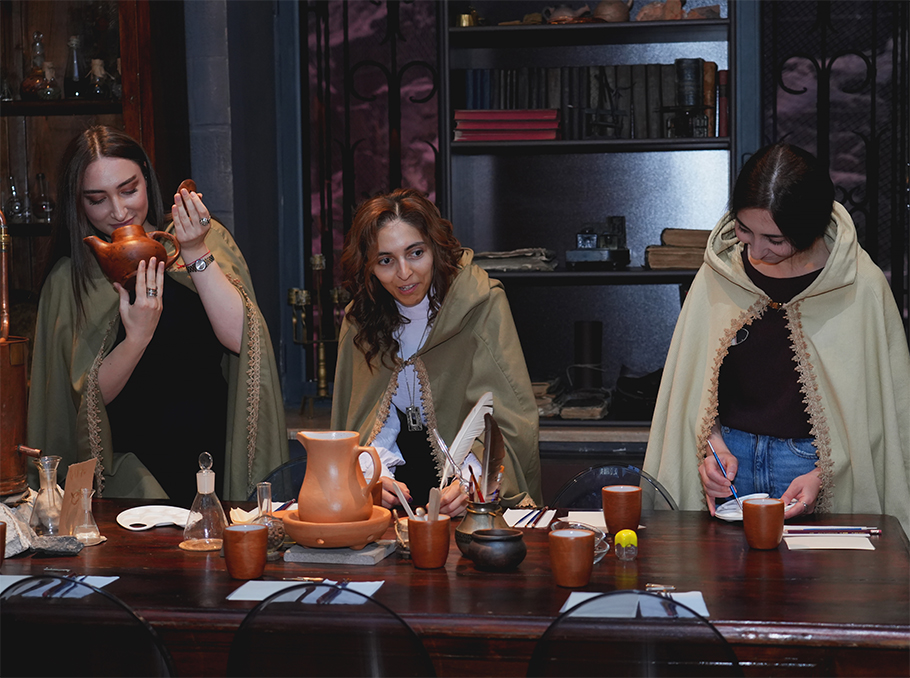
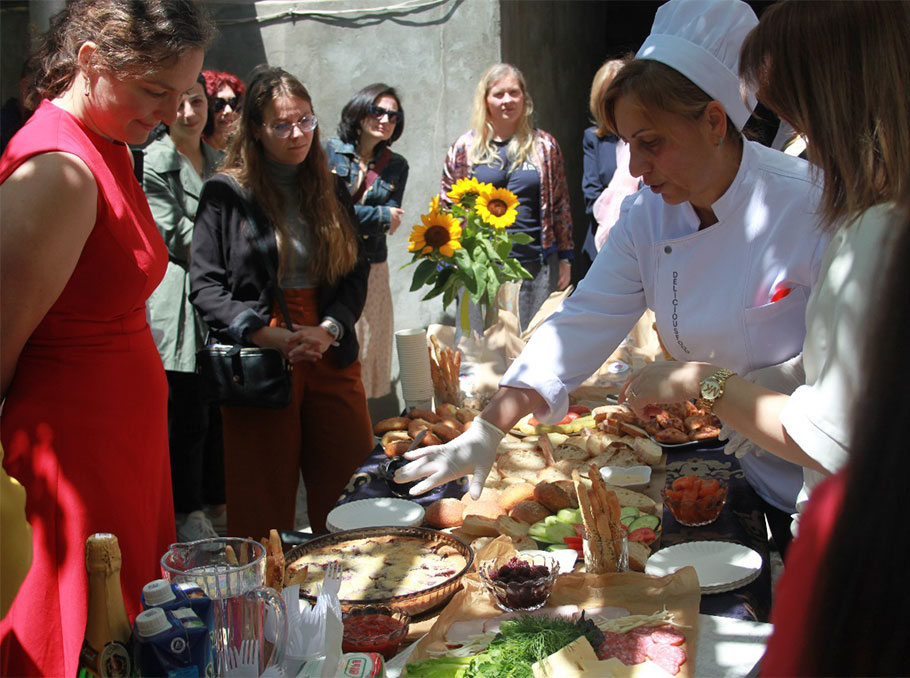
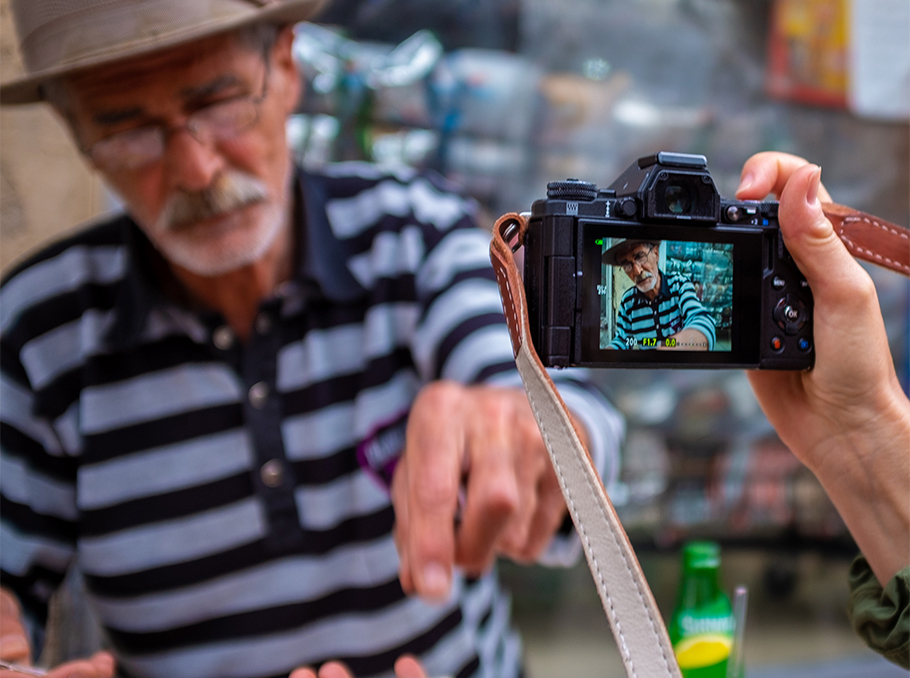
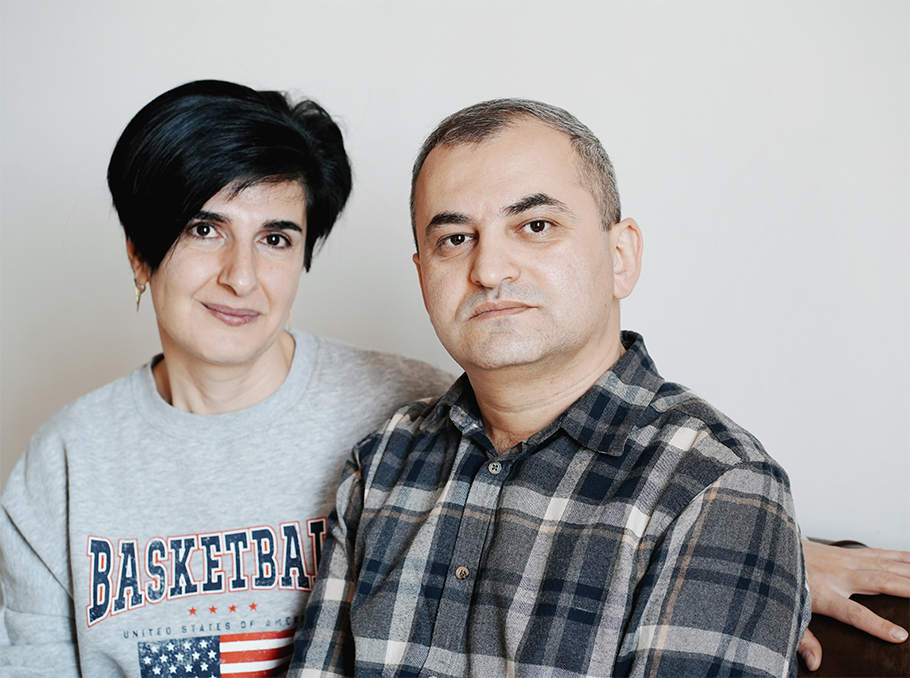







Comments
Dear visitors, You can place your opinion on the material using your Facebook account. Please, be polite and follow our simple rules: you are not allowed to make off - topic comments, place advertisements, use abusive and filthy language. The editorial staff reserves the right to moderate and delete comments in case of breach of the rules.